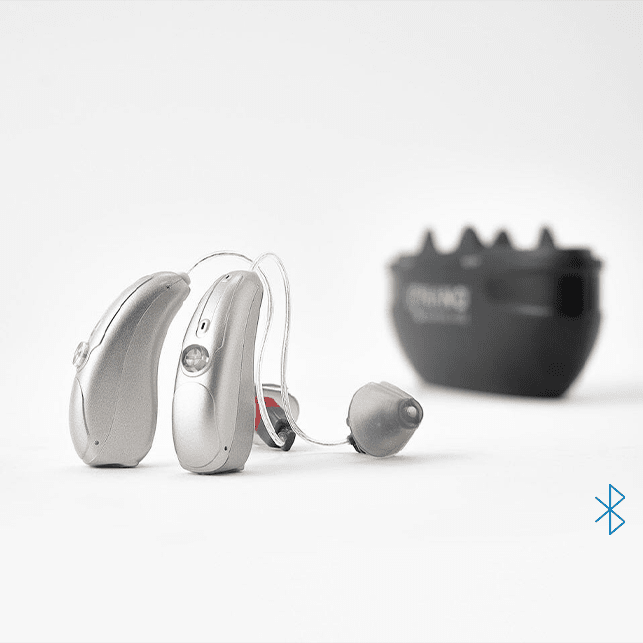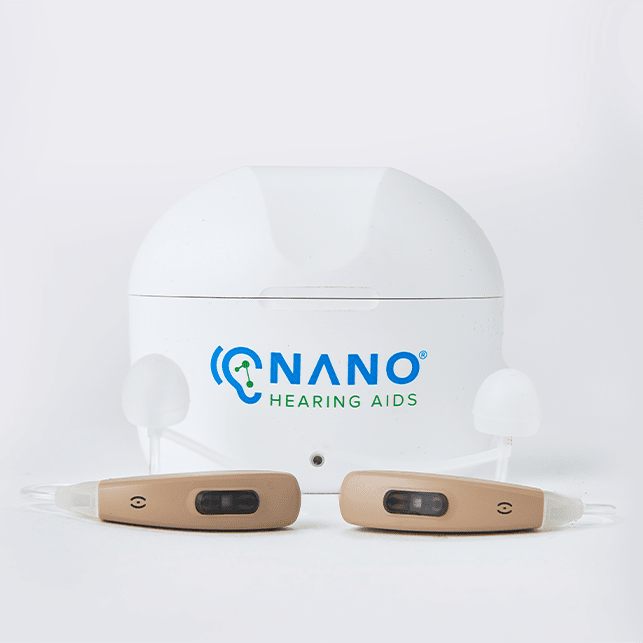About OTC Hearing Aids
Are Nano’s hearing aids Over the Counter (OTC) Hearing Aids?
- Yes. Nano’s hearing aids are OTC hearing aids, a category of products defined by the FDA.
What type of a hearing loss is an OTC hearing aid made for?
- OTC hearing aids are designed for individuals with perceived mild to moderate hearing impairment.
How does an individual know they have perceived mild to moderate hearing loss?
- They have trouble hearing speech in noisy places
- They find it hard to follow speech in groups
- They have trouble hearing on the phone
- Listening makes them tired
- They need to turn up the volume on the TV or radio, and other people complain it’s too loud.
Is there an age requirement to use OTC hearing aids?
- Yes. Individuals must be over 18 years of age to use OTC hearing aids.
What main features make a hearing aid an OTC hearing aid?
- The user can change the hearing aid to different programs to hear in different environments.
- The volume can be adjusted.
- The output is limited for mild for moderate hearing impairment.
Are Nano’s hearings aid “Prescription” hearing aids?
- No. Because Nano’s hearing aids are OTC, individuals do not need a medical exam, prescription, or a fitting adjustment by an audiologist or hearing professional to use them.
What are the signs that an individual may need help from a hearing healthcare professional, like an Audiologist?
- They can’t hear speech even if the room is quiet.
- They don’t hear loud sounds well, for example, they don’t hear loud music, power tools, engines, or other very noisy things.
- If their hearing loss makes it hard to hear loud noises.
- If a Nano hearing aid does not help them enough.
What are the warning signs that an individual should see a doctor, preferably an ear-nose-throat doctor (an ENT) and NOT buy an OTC hearing aid?
- Their ear has a birth defect or an unusual shape. Their ear was injured or deformed in an accident
- They saw blood, pus, or fluid coming out of their ear in the past 6 months
- Their ear feels painful or uncomfortable
- They have a lot of ear wax, or think something could be in their ear
- They get really dizzy or have a feeling of spinning or swaying (called vertigo)
- Their hearing changed suddenly in the past 6 months
- Their hearing changes: it gets worse then gets better again
- They have significantly worse hearing in one ear
- They hear ringing or buzzing in only one ear


